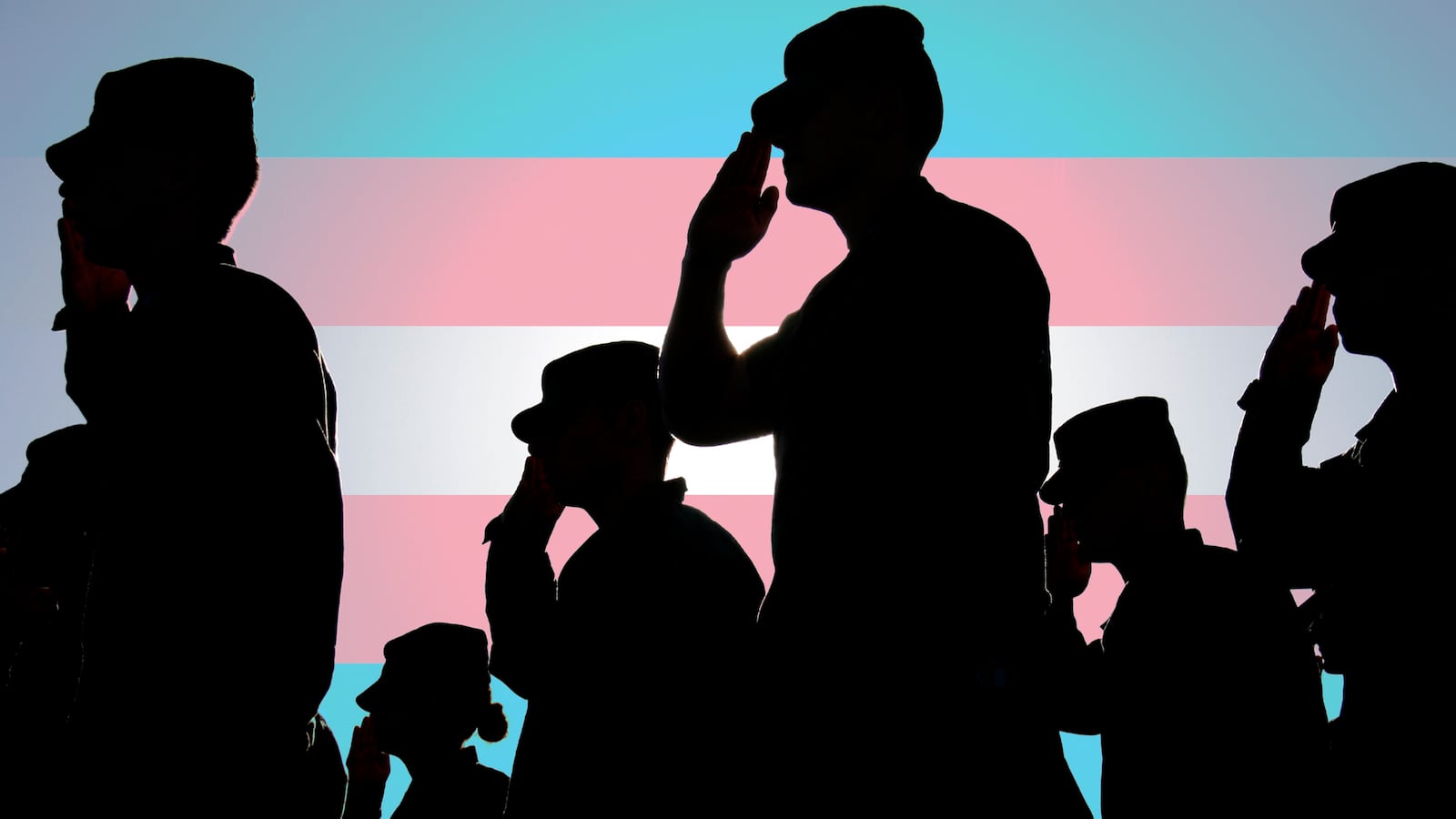Natalie has been waiting to serve in the military since she was 18.
She’s 25 now.
Even though the Pentagon is poised to allow transgender recruits to enlist starting Jan. 1—as the Associated Press first reported—she is still afraid that she could get kicked out if the judicial victories that are currently stacking up against President Trump’s transgender troop ban eventually get overturned.
When Natalie—a student from Seattle who requested to be identified by her first name—first heard the news about the Pentagon finally allowing transgender recruitment, she was thrilled, tweeting that it “feels so surreal that something withheld from me as a young girl is now mine for the taking.”
But the position she has long dreamed about—a commission as a Surface Warfare Officer in the Navy—could still be pulled from under her by a future court ruling.
“Being so close to wearing the uniform and having it stripped from me would be an inconceivable moment—but not all that surprising in this political climate,” she told The Daily Beast.
Three federal judges have now ruled against the transgender troop ban, which Trump first hastily tweeted in late July without, as CNN reported, even warning the Joint Chiefs of Staff.
But although these rulings have given some measure of hope to the estimated 4,000 currently-serving transgender troops, transgender civilians who are hoping to serve alongside them one day are still watching the court cases with a wary eye.
Indeed, Trump’s transgender troop ban doesn’t even have to go into effect to deter an entire generation of young transgender people from signing up.
“There’s still concern that they could join and then something would happen—perhaps a new version of the policy that would cause them to have to leave the service,” Bryan Fram, policy chair for the LGBT military organization SPART*A, told The Daily Beast, adding that “we’re all still worried” but the “outlook is rosy, in that eventually we will put this to bed and we’ll be here for the long term to serve.”
Some of Fram’s trepidation stems from watching the Trump administration try to get three different versions of the travel ban on some Muslim-majority countries through the courts, undeterred by various injunctions, until they crafted one that the Supreme Court allowed to go into effect earlier this month.
But part of what makes Fram confident in an eventual win is just how emphatic some of the rulings against the ban have been.
In late October, U.S. District Judge Colleen Kollar-Kotelly issued a preliminary injunction, writing that the transgender plaintiffs were “likely to succeed in this lawsuit under the Fifth Amendment,” and criticizing the way in which Trump “abruptly announced [the ban], via Twitter—without any of the formality or deliberative process that generally accompany the development and announcement of major policy changes that will gravely affect the lives of many Americans.”
Then, in late November, U.S. District Judge Marvin Garbis wrote that the ban “cannot possibly constitute a legitimate governmental interest,” as Reuters reported.
This Monday, as the AP reported, U.S. District Judge Marsha Pechman also blocked the ban, on behalf of one currently-serving soldier and two who hope to serve.
Kollar-Kotelly also weighed in again this Monday, denying the Trump administration’s request to stop the Pentagon from allowing transgender people to enlist, and writing in her denial of the stay—as NPR noted—that she was “not convinced by the vague claims” made to try to to delay recruitment.
“They tried four different times on the travel ban just tweaking the wording to find something that would meet a standard,” Fram told The Daily Beast. “Luckily, what we’ve had are very strong words against the policy.”
But although the outcome of the various challenges to the transgender troop ban remain uncertain—or, as Fram colorfully put it, there are “more nails in the coffin” but it’s “definitely not sealed yet”—it seems unlikely that the Trump administration will be able to intervene before Jan 1., when new transgender recruits will be allowed to enlist.
That recruitment process—first set in motion by the Obama administration, which lifted the ban on open transgender military service in June 2016–will proceed under relatively strict Pentagon guidelines, requiring anyone who wants to enlist to be, as the AP paraphrased, “clinically stable in their preferred sex for 18 months” and “free of significant distress or impairment in social, occupational, or other important areas.”
As The Daily Beast previously noted, transgender people could have enlisted as soon as this summer under a deadline set by former Defense Secretary Ash Carter, had it not been for the Trump administration’s delays and intervention.
Military leaders had been preparing for the shift for quite some time, completing the necessary trainings. In fact, the 18-month requirement reported by the AP this week, matches the Obama administration’s original plan for transgender recruitment.
SPART*A knows that this recruitment policy might be a difficult bar for some young transgender people to clear but hopes to see an influx nonetheless.
“It will be exciting to see on January 1st if people start going to their recruiting station and signing up,” Fram told The Daily Beast. “I know the policy even for that isn’t perfect but it’s a great start and all military policies evolve over time.”
Natalie, for her part, hopes to attend the Navy’s Officer Candidate School sometime next year, or in early 2019. She knows that because she has had to wait so long already, she will now “be much older than [her] peers and [her] immediate superiors upon commissioning”—and that this age gap might prove to be a “significant detriment” to her career. But she has also “done way too much to prepare for it” to give up now.
“I’ll persist no matter what,” she said.






